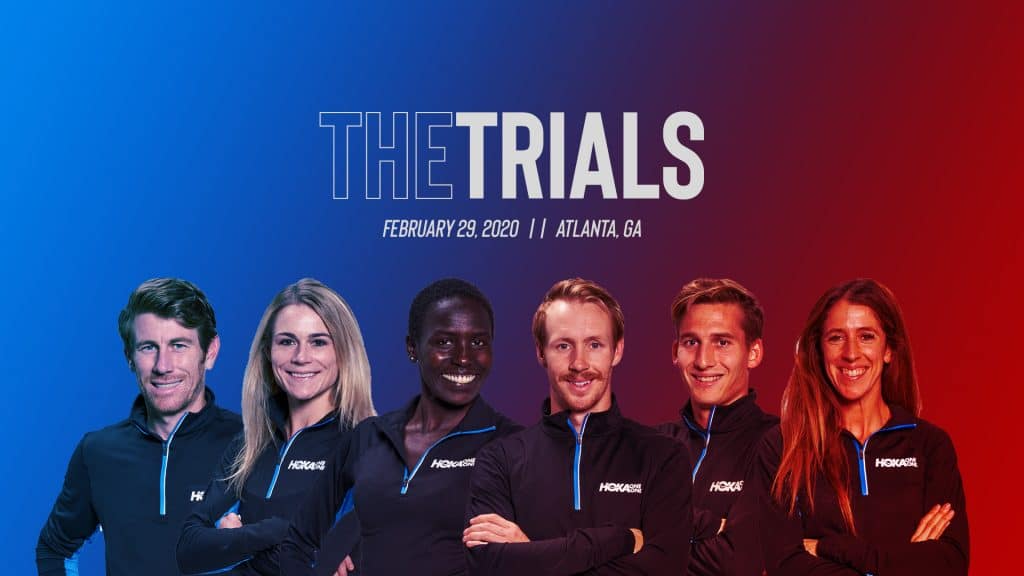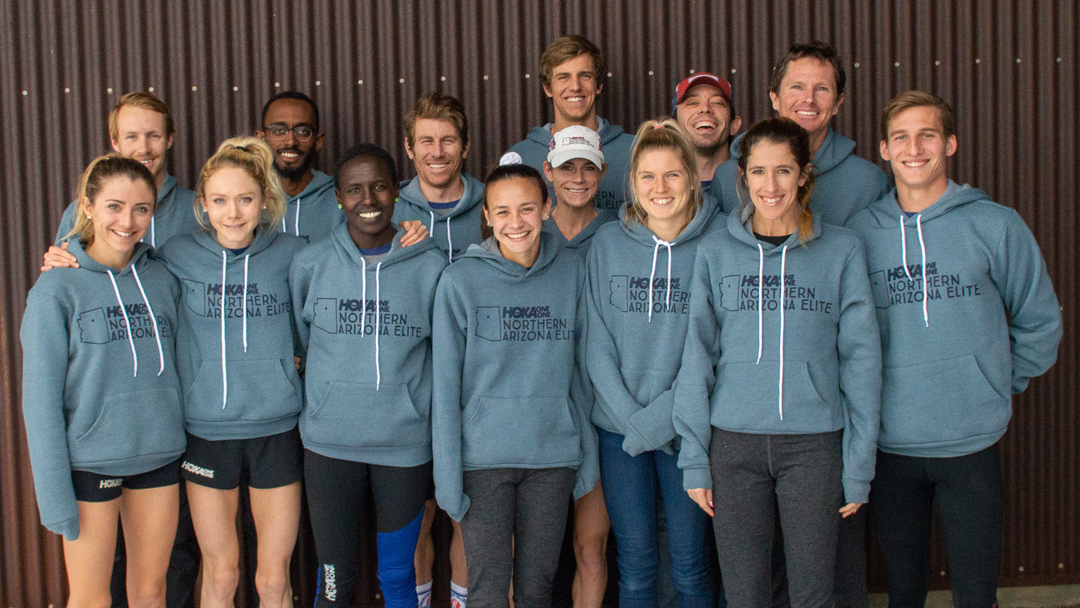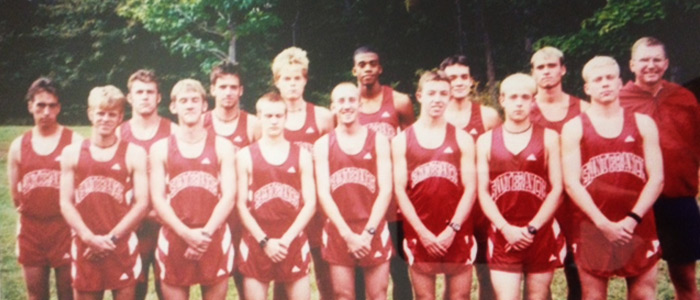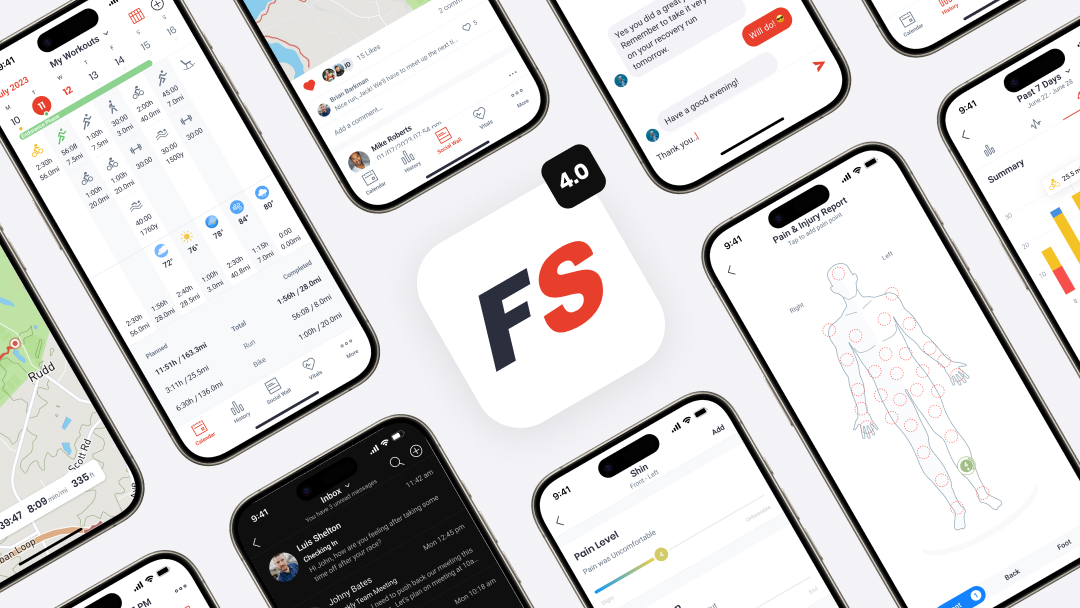Head Coach Ben Rosario takes us through the thought process behind his team’s training heading into Atlanta and breaks the news that he’s made three versions (Intermediate, Advanced and Super Advanced) of the plan available for purchase on Final Surge.
Hey everyone! It’s been almost two weeks since the United States Olympic Trials Marathon in Atlanta. I am still buzzing from the day we had there. Though we had hoped for even more, we did put five athletes in the top 20, including all three of our women in the top eight—with Aliphine Tuliamuk getting the WIN. As a coach, and as a team, we’ve certainly gotten things wrong before, but we did seem to get this one right. So when the good folks at Final Surge asked me to write a blog post about our Trials training and (BIG NEWS) create some training plans based on that training, I was all for it.
Part of the excitement I felt in writing this post, and particularly in writing the training plans, is that it gave me yet another chance to re-live these last three months—some of the most fun of my entire life. But of course the process of preparing for the Trials began long before that. Our group was launched in January of 2014 and from that point through the 2019 TCS New York City Marathon we had run more than 35 marathons. That’s a lot of anecdotal data to work with when it came to figuring out the puzzle that would be the Olympic Marathon Trials training segment.
That word, puzzle, is one I use quite often when describing writing a training plan. The first step is figuring out what pieces you need, and how many. The next step is figuring out in what order to put them down, and finally—at what interval. Ideally, you’re placing that final piece of the puzzle down on race day itself. That’s the day you want everything to come together.
I had been working on the Trials puzzle for about a year-and-a-half before we actually got to December 8—12 weeks out from the race. And though I say, “I was working,” this was very much a collaborative effort in the sense that all the decisions I was making were based on feedback from our athletes over the previous six years. It was Scott Fauble telling me he preferred when our super long runs had a push at the end, or Steph Bruce telling me she struggled if a mid-week workout was too fast because it was such a shock to the system, or Kellyn running so well at Grandma’s on an abbreviated build-up. And the list goes on.
So assessing what’s worked best for us in the past was my number one guiding principle. I did not want to reinvent the wheel for this segment. I wanted our approach to be one of confidence in ourselves, and in everything we’d accomplished to this point. That said, one of the things that’s worked for us in the past is the fact that we’ve always been willing to make slight tweaks to our training in order to prepare for the specific challenges a certain course, or certain conditions, may present. In the case of Atlanta, that challenge was the constantly undulating terrain.
Fortunately for us, Flagstaff, Ariz. is not lacking undulating terrain. In fact, one of our favorite training spots, Lake Mary Rd., is quite hilly—especially the first five miles. So early on, as I crafted our training outline, I knew we’d be spending a lot of time going back on forth on that one stretch of road. I also picked out a couple of other spots that I thought would give us those same sorts of ups and downs but on places we hadn’t worked out on before. Making changes like that can be a great way to challenge the mind and give the athletes something to be excited about, even though the actual work, physiologically, is essentially the same as what they have done before.
There were three other things that perhaps those reading this post might find interesting. One is I did not want the segment to be very long. I knew the intensity that training for the Trials inherently elicits can only be sustained for so many days. So I settled on twelve weeks as the total length of the segment. Number two is I did not want to push the envelope on our overall mileage. We’ve really learned as a group that it’s much more about the big marathon specific sessions and much less about trying to rack up huge mileage numbers. Not saying that’s right for everyone, but that’s what’s worked for us and for the types of athletes that succeed in our program. As my friend Lee Troop (coach of newly minted Olympian Jake Riley) said in a tweet recently, “The thing to note is that despite all our training being slightly different, none of it is wrong. The key is finding the right athlete that benefits from it rather than forcing it on the athlete. We have all had success with different approaches and not one way fits all.”
The final thing I’d note is that down the homestretch, the final five weeks, I wanted to make sure that we pulled back on the difficulty of our mid-week workout in terms of both intensity and volume in order to ensure we’d be able to have even better marathon specific sessions on the weekend. This is something that’s been working for us ever since we saw how well Kellyn ran at Grandma’s in 2018 off of really just three big workouts leading in. That sort of brings us back to that idea of the puzzle and making sure we don’t try to fit too many pieces into a picture that is probably simpler than we make it out to be.
Hopefully, that gives you the overarching view of what our training was all about going into the Trials. What we’ve done with our 2020 Training Plans available to all of you on Final Surge is to simply re-create that training in an easy-to-read and fun-to-follow way. As the aforementioned Lee Troop quote gets at, that doesn’t mean it’s going to work miracles for you. But if you’re someone who really thrives on the long workouts, but also likes variety in your week-to-week training schedule, then I do believe you will enjoy these plans. We have three options. The Super Advanced Plan is literally the same training that our athletes did before Atlanta—same mileage, same everything. The Advanced Plan has the exact same hard workouts, but a little less overall volume. And the Intermediate Plan is for those of you who run 60-75 miles a week so the overall mileage and the volume of some of the longest sessions is reduced to suit your needs.





